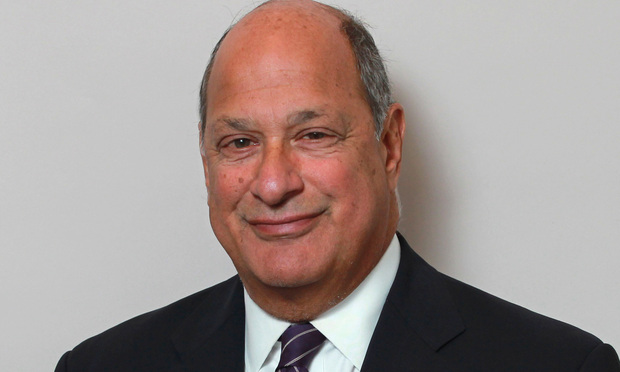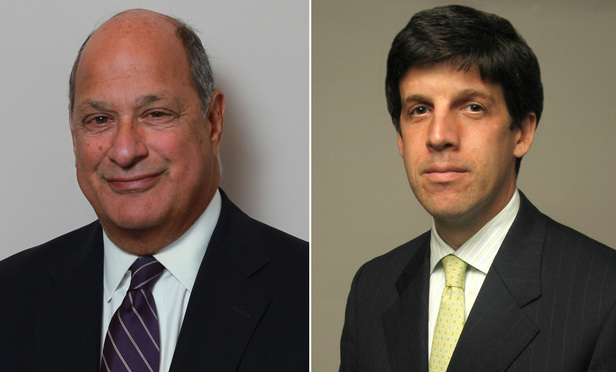Joel Cohen

April 12, 2016 | New York Law Journal
When Adjournment Requests Are CriticalIn his Ethics and Criminal Practice column, Joel Cohen writes: Although the Rules and case law are clear that counsel cannot delay for the sake of delay, 'U.S. v. Abney' most graphically tells us why a delay is sometimes not only warranted—but that a failure to seek a delay may allow for an ineffective assistance of counsel claim.
By Joel Cohen
24 minute read

February 09, 2016 | New York Law Journal
Can the Superseding Indictment Process Be Abused?In his Ethics and Criminal Practice column, Joel Cohen writes that not so long ago, a defendant and his attorney knew the precise charge he would face at trial when arraigned. There was no concern that the indictment might be only a "working draft" of the prosecutor's charging plan. Times have changed. Prosecutors, federal in particular, frequently file indictments with plans to return to the grand jury to add counts that could have been filed in the first place, or to repair flaws, or to add counts.
By Joel Cohen
12 minute read

December 08, 2015 | New York Law Journal
Changing a Criminal Client's Social Media PagesIn their Ethics and Criminal Practice column, Joel Cohen and James L. Bernard write: Social media has become a powerful tool for law enforcement. But manipulating a client's social media persona (really, the client's public persona) can also be a powerful tool for targets or defendants, one that an attorney may want to explore—provided he does so within the bounds of his ethical, or legal, obligations.
By Joel Cohen and James L. Bernard
13 minute read

December 07, 2015 | New York Law Journal
Changing a Criminal Client's Social Media PagesIn their Ethics and Criminal Practice column, Joel Cohen and James L. Bernard write: Social media has become a powerful tool for law enforcement. But manipulating a client's social media persona (really, the client's public persona) can also be a powerful tool for targets or defendants, one that an attorney may want to explore—provided he does so within the bounds of his ethical, or legal, obligations.
By Joel Cohen and James L. Bernard
13 minute read

October 13, 2015 | New York Law Journal
When You Threaten a Disciplinary ReferralIn his Ethics and Criminal Practice column, Joel Cohen writes: Lawyers typically don't really want to threaten an adversary to gain an edge. Nor do they want to actually refer a complaint—criminal or disciplinary—to the authorities. But reticence to make a complaint is quite a bit different than "threatening" to bring a complaint, particularly when the client hopes that the mere "threat" will cause the "offender" to change his mind and resist engaging in the unethical act.
By Joel Cohen
11 minute read

October 09, 2015 | New York Law Journal
When You Threaten a Disciplinary ReferralIn his Ethics and Criminal Practice column, Joel Cohen writes: Lawyers typically don't really want to threaten an adversary to gain an edge. Nor do they want to actually refer a complaint—criminal or disciplinary—to the authorities. But reticence to make a complaint is quite a bit different than "threatening" to bring a complaint, particularly when the client hopes that the mere "threat" will cause the "offender" to change his mind and resist engaging in the unethical act.
By Joel Cohen
11 minute read

August 11, 2015 | New York Law Journal
Confidentiality: Keeping Secret Non-Privileged InformationIn his Ethics and Criminal Practice column, Joel Cohen writes that every practicing attorney knows that any confidence learned from the client in the confessional of his representation must remain confidential. But what of information that came to the attorney independently, although in the context of the representation. Is it protected?
By Joel Cohen
13 minute read

August 10, 2015 | New York Law Journal
Confidentiality: Keeping Secret Non-Privileged InformationIn his Ethics and Criminal Practice column, Joel Cohen writes that every practicing attorney knows that any confidence learned from the client in the confessional of his representation must remain confidential. But what of information that came to the attorney independently, although in the context of the representation. Is it protected?
By Joel Cohen
13 minute read

June 09, 2015 | New York Law Journal
Disclosure of Information: Is Complying With 'Brady' Enough?In his Ethics and Criminal Practice column, Joel Cohen writes: Does Rule 3.8(b) of the New York Rules of Professional Conduct coexist with 'Brady', or does it require more from a prosecutor? In other words, are a prosecutor's ethical responsibilities greater than his constitutional obligations?
By Joel Cohen
12 minute read

June 08, 2015 | New York Law Journal
Disclosure of Information: Is Complying With 'Brady' Enough?In his Ethics and Criminal Practice column, Joel Cohen writes: Does Rule 3.8(b) of the New York Rules of Professional Conduct coexist with 'Brady', or does it require more from a prosecutor? In other words, are a prosecutor's ethical responsibilities greater than his constitutional obligations?
By Joel Cohen
12 minute read
Trending Stories
- 1Gibson Dunn Sued By Crypto Client After Lateral Hire Causes Conflict of Interest
- 2Trump's Solicitor General Expected to 'Flip' Prelogar's Positions at Supreme Court
- 3Pharmacy Lawyers See Promise in NY Regulator's Curbs on PBM Industry
- 4Outgoing USPTO Director Kathi Vidal: ‘We All Want the Country to Be in a Better Place’
- 5Supreme Court Will Review Constitutionality Of FCC's Universal Service Fund
More from ALM
- Legal Speak at General Counsel Conference East 2024: Match Group's Katie Dugan & Herrick's Carol Goodman 1 minute read
- Legal Speak at General Counsel Conference East 2024: Eric Wall, Executive VP, Syllo 1 minute read
- Legal Speak at General Counsel Conference East 2024: Virginia Griffith, Director of Business Development at OutsideGC 1 minute read



